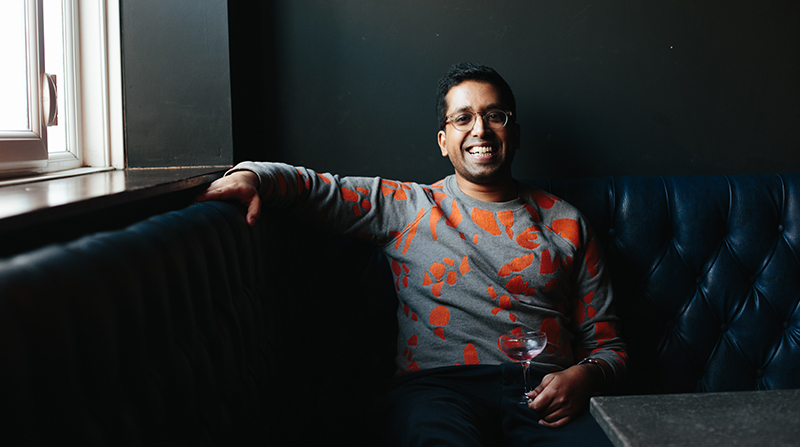

Ryan “Mr Lyan” Chetiyawardana. Credit: Mr Lyan
“International Bartender of the Year” (Tales of the Cocktail), “Personality of the Decade” (Imbibe) and “World’s Best Bar” (World’s 50 Best) are just three of many accolades Manchester-born mixologist and businessman Ryan Chetiyawardana, aka Mr Lyan, has collected over the last few years.
He knows more than a thing or two about whipping up a cocktail and, as his portfolio of bars and restaurant shows, creating the perfect spot in which to enjoy them. And his 30,000-plus Instagram followers will attest that he’s also infectiously passionate about his work and the industry.
Chetiyawardana’s first London opening, White Lyan (since reincarnated as Super Lyan), pushed boundaries by being the first bar in the world to shun both perishable ingredients — ice, fresh fruit — and brands in favor of housemade spirits and cordials.
His second, Dandelyan, followed with a similarly sustainable and innovative approach, bagging the aforementioned hat trick of “World’s Best” titles in the process. Then came cocktail restaurant Cub, where food and drink are combined with zero-waste ethics to delicious effect.
This year promises to be another busy one for Team Lyan. Dandelyan closes in March, reopening a few weeks later as Lyaness with a new look and concept. In April, Super Lyan relocates from East London to Amsterdam and, in November, a new chapter starts in Washington, D.C., with Silver Lyan.
Forbes Travel Guide sat down with the drinks doyen to reflect on his journey, his cocktail inspiration, passion for sustainability and his favorite places to imbibe.
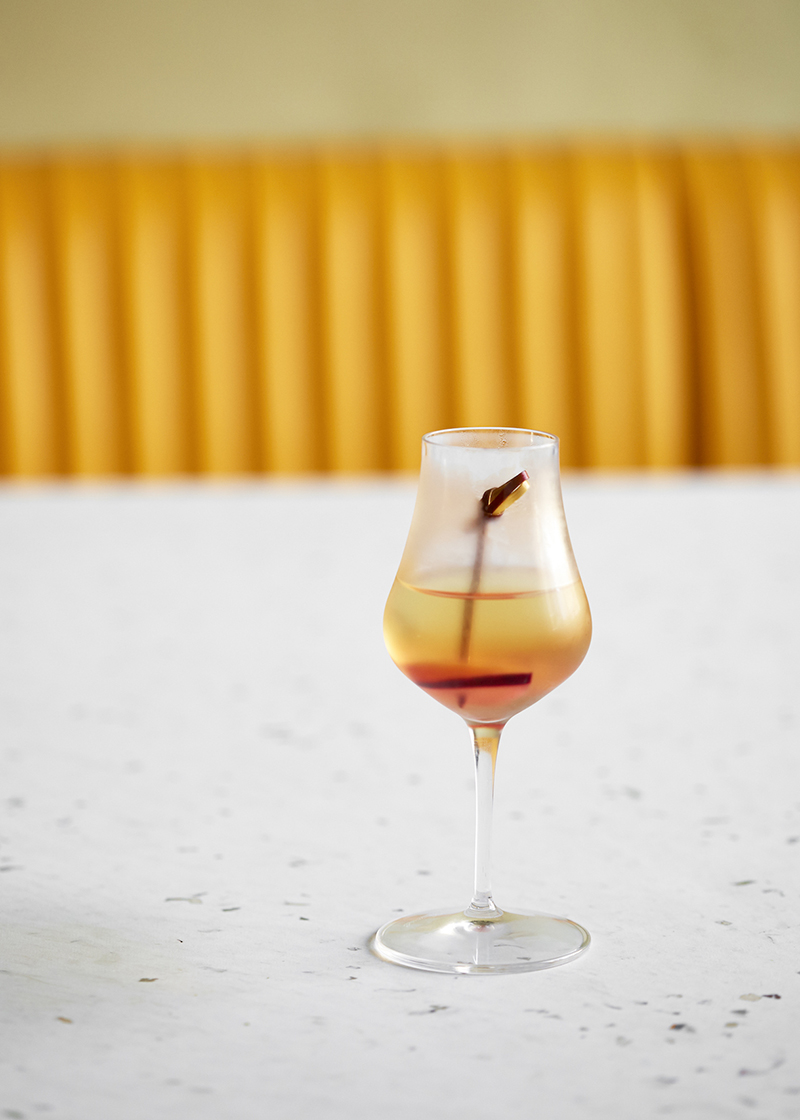
Tea Drink at Cub. Credit: Kim Lightbody
How did your nickname come about?
The nickname was something from when I was very young — it was kids simply mis-pronouncing “Ryan.” But the idea to apply it came when I saw people struggling with my surname. We wanted something that linked to the personal nature — it’s a family business — and something that tied together the many parts, so it seemed a fun way of linking it all up!
When you were a child, what did you want to be when you grew up?
Definitely at one point a doctor; my dad is a cancer specialist, and I was always amazed by nature. I had a bug box investigating the pond or the garden from a very young age, and a propagator growing various plants when I was four. And I was always a keen biology student — through to university days — but my dad discouraged me. He rightfully recognized that I would have gotten frustrated.
After that, it was either to work in music or design. I feel like all the parts have come through in some regards. I was always trying to forge a balance between arts and sciences.
As your Instagram feed shows, you’re clearly into your food. Where did this passion come from?
We all cooked from a very young age. My mum was a phenomenal cook, and later a pastry chef, but she taught us about how food brought people together. This became the guide to me about what food is about and that aspect is still a huge love. And with that, it’s such a great way to discover. It’s an accessible window into diverse cultures.
What are the foods and flavors that make you go, “Mmm?”
Tropical fruits blow my mind. Transformed flavors — fermentation/preserved, sure, but also the different processing that each culture has.
Teas and whiskies, just for the sheer variance and range in flavor.
Ultra-fresh herbs and spices. I’m just not good with oil-based spice/trigeminal effects; I can’t comprehend chili and I don’t like metallic flavors, so oysters are out!
When did you first develop an interest in mixology?
I think it came when I was quite young. Birmingham [the English city where he grew up] has quite a young drinking age, and I remember trying to find ways to make booze fun and palatable. But because I could cook, I went beyond simply trying to throw it all into a slurry. When I started training as a chef, this went into overdrive; I wanted to work with flavor, but I also wanted to talk and interact with people, so the bar was the obvious choice.
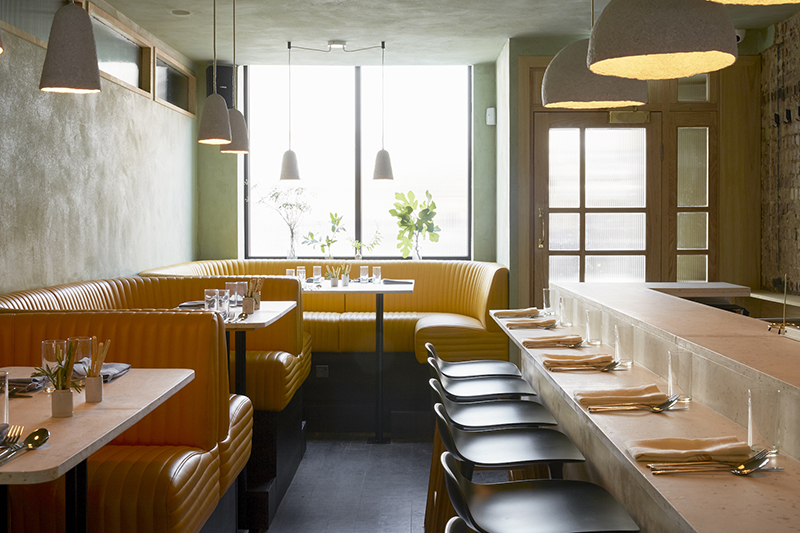
Cub. Kim Lightbody
Sustainability has long been an ethos for you in your work. Where does this interest come from?
Some of it from logic. If you care about a subject, you start to strip it back, and it was plainly obvious how important this was. Of course, my upbringing had a huge role — when we were tight on money when I was young, and coming from a Buddhist family, and being a biologist, it was always present to be conscious of your impact on your surroundings and how to make do without generating unnecessary waste.
What key ways do you try to achieve this?
I try to challenge conventions. This was my starting point back in 2008, 2009: question the foundations and ask why. That’s still the guide to this day, but the problems and solutions have evolved.
What methods would you love to see other bars/restaurants adopt?
We, of course, need to focus on waste, but we need to go beyond this. Empowering your suppliers and using your buying power, as well as empowering and supporting your staff are critical to taking these problems on in a more holistic manner.
What’s been your worst experiment in mixology?
Ha! Probably many, but I value them hugely. You learn better, or at least quicker, from mistakes. I tried to use bases, alkali to balance the acidity in citrus fruit. Didn’t taste good at all.
What concoction are you particularly proud of?
The use of wax or the use of microbes were very early in my work. And it’s great to see those more commonplace now. But the Moby Dick Sazerac from White Lyan, made with ambergris, is still a really proud moment.
What are the key ingredients to a top cocktail bar?
Good people. That’s all you need!
Where do you get inspiration for new recipes?
It really comes from everywhere. Sometimes from tasting and it triggering memories or associations, but mostly from conversations around the different cultural expressions that bring people together.
What ingredients do you particularly love working with?
Microbes, whiskey, sherry, tea, salt, alternative forms of ingredients, bananas, wood.
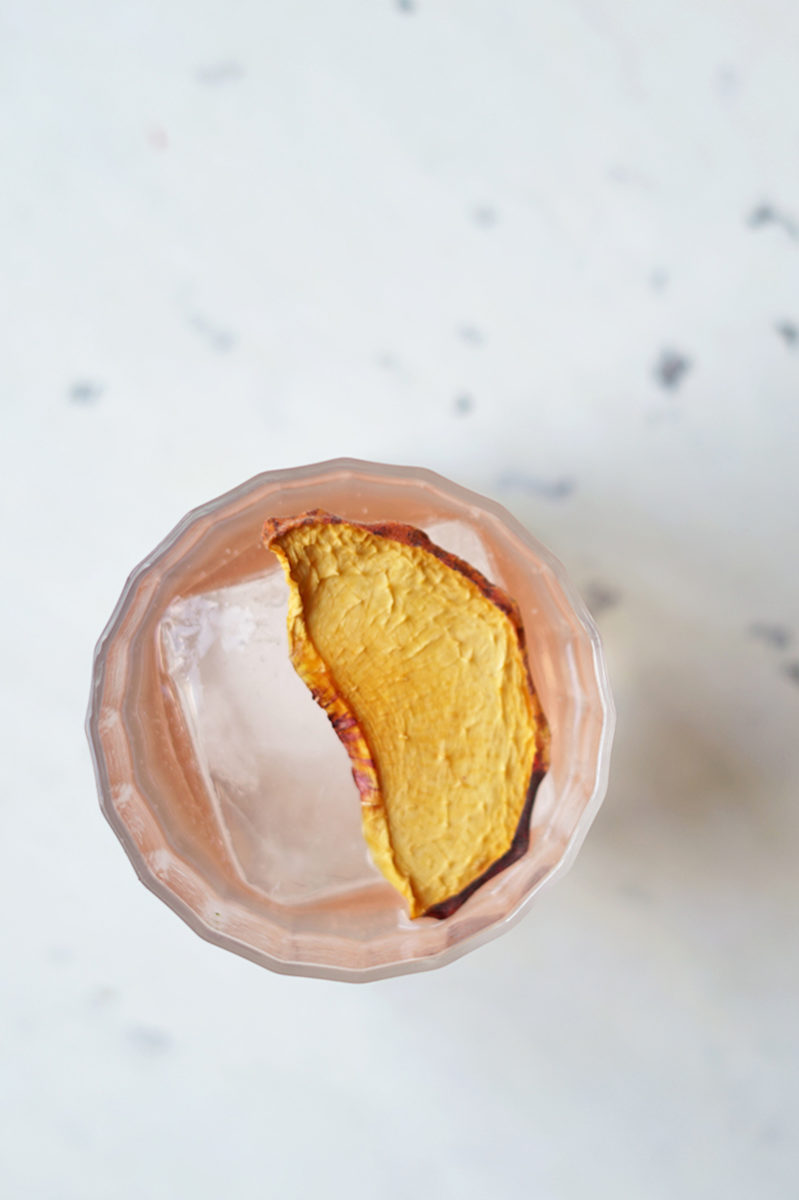
One of Mr Lyan’s Creative Pours. Credit: Mr Lyan
What drink fads are you tired of?
The one-upmanship of weird/inedible/fermented ingredients instead of it being for function or honesty. Overelaborate serves for the same reasons.
Drinks with indecipherable ingredients that no one can understand — or that aren’t trying to be inclusive. When it becomes about the bartender or the venue or patting oneself on the back instead of being exciting or fun for the guest, then it doesn’t work.
Gender-driven drinks. Gender doesn’t exist in drinks. It’s just ignorant to try project so.
Greenwashing: labeling as “sustainable” simply because it’s a hot topic. Of course, every little bit helps, and moving toward breaking down the stigma is great, but sometimes it’s simply marketing with absolutely no relevance or care for the topic.
And charcoal.
What trends do you predict and/or are looking forward to in 2019?
Non-category spirits: spirits that don’t fall into traditional boundaries. We see this already with the fun governmental term of “spirit drink” when it doesn’t easily conform to a neat categorization. But hybrid spirits or things such as the products from Empirical Spirits in Copenhagen are redefining what alcoholic produce can be about. Pro tip: It’s about flavor, instead of easy status quo.
Ingredients empowering a supplier [will also be a trend]. We talk about certain spirit brands, or might talk about the style of caviar on a dish, but why do we not champion the person behind a fruit or vegetable? As we shift to a model of luxury that is about balance and provenance, but still deliciousness, why are we not celebrating the people who are working hard to develop ingredients that have a long-term look at our impact on the world, that showcase a different approach to agriculture and that are creating wonderful produce that expands where we see deliciousness coming from?
Ingredients that tell the story of a culture, authentically. We often see adapted versions of different cuisines, but these are merely nodded to — although there are, of course, great examples in this style. It’s exciting to see more that are trying to tell the story of the places and people that have created these flavors.
That isn’t only from indigenous people, but practices that are trying to showcase an authentic highlight of what these cultures have created. For example, Colombo Gin is made in the U.K., but it uses the story and botanicals of Sri Lanka to tell an authentic story, or Kiln in London uses herbs and spices grown in Devon, and cooks over open fire to give a slice of the wonderful stories founder Ben [Chapman] found on his travels to Thailand.
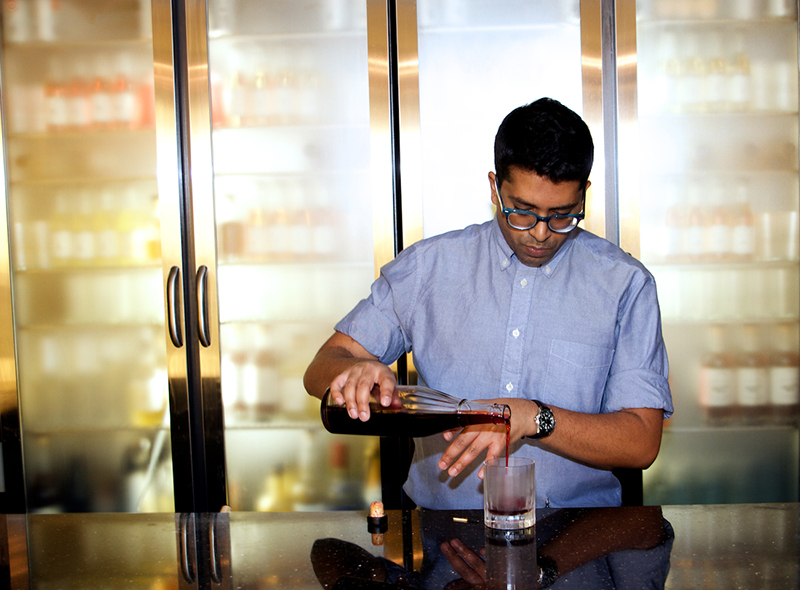
Mr Lyan at White Lyan. Credit: Mr Lyan
Dandelyan, collector of an impressive array of awards, is set to close in March. How do you feel about that?
I’m super excited! It seems only fitting to me that we’re closing it now. It’s time to wrap. I’m so thankful for what we did with Dandelyan, but it was a bar that worked for a time and place and that, thankfully, has shifted, so I’m proud that we are, too.
Who are your food and drink heroes?
My old mentors — Mike Aikman, Jas Scott, Craig Harper, Ian McLaren — as well as Andy Gemmell, Stu McCluskey, Lewis Jaffrey, Chris Stock, Ueno San and many other bosses taught me so much. I’m hugely grateful to them for encouraging my curiosity and reinforcing what I believed was the actual focus of the industry: bringing people together, not the theme of the bar.
I was super honored to have [British celebrity chef] Marco Pierre White crown me U.K. Bartender of the Year the first time, and he was incredibly supportive, but I was very much focused in on learning — somewhat in a bubble — and evolving what I was doing, so I don’t have any “heroes” as such.
Where are your favorite places to drink with friends? And, what are you ordering?
So many! Bramble, Edinburgh; Attaboy, NYC; Star Bar and Bar High Five, Tokyo; Ruby, Copenhagen; Lost Lake, Chicago; La Venencia, Madrid; Bow Bar, Edinburgh — it depends where I am and who I’m with. But I love to take the venues’ leads on suggested serves. I love martinis, Scotch and soda, daiquiris, sherry, wine, beer. I’ll follow what suits the setting.
As a receiver of the World’s Best Bar Award, where would you consider the best?
Bramble, Edinburgh. It’s honest, fun, magical. It has great people, killer tunes and amazing atmosphere.
Apart from London, where would be your dream location to open a Lyan bar?
I joked with Iain [Griffiths, his business partner] early on that Australia would be the most likely location — amazing produce, naturally hospitable bartenders, an interested public — but I would love to do Mexico. Probably paradise to me.
